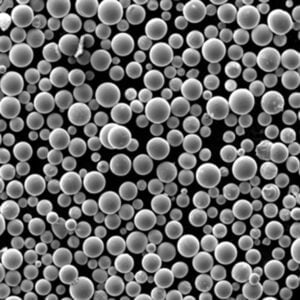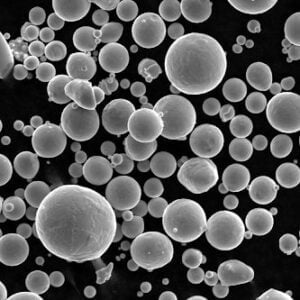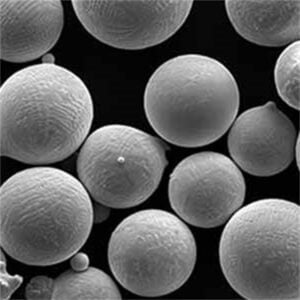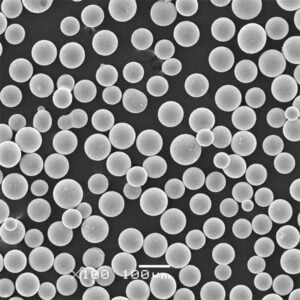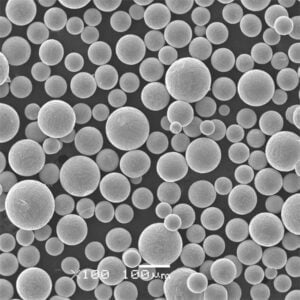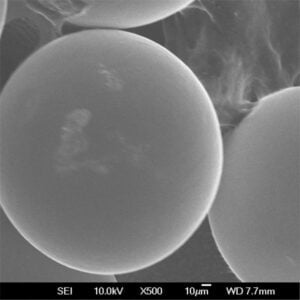Processen med roterande elektrod
Innehållsförteckning
Översikt över Process med roterande elektrod
Den roterande elektrodprocessen (REP) är en sofistikerad metod som används vid tillverkning av högkvalitativa metallpulver. Denna teknik involverar smältning av en metallelektrod som roterar snabbt i en inert atmosfär, vilket leder till produktion av fina, sfäriska metallpulver. Dessa pulver är kritiska i olika industrier, inklusive flyg-, bil- och elektronikindustrin, på grund av deras överlägsna egenskaper och enhetlighet.
Viktiga detaljer om den roterande elektrodprocessen
REP är känt för sin förmåga att producera pulver med specifika partikelstorleksfördelningar och hög renhet. Processen använder vanligtvis metaller som titan, nickel och rostfritt stål. Denna metod är särskilt uppskattad för sin effektivitet vid framställning av pulver för additiv tillverkning och pulvermetallurgiapplikationer.
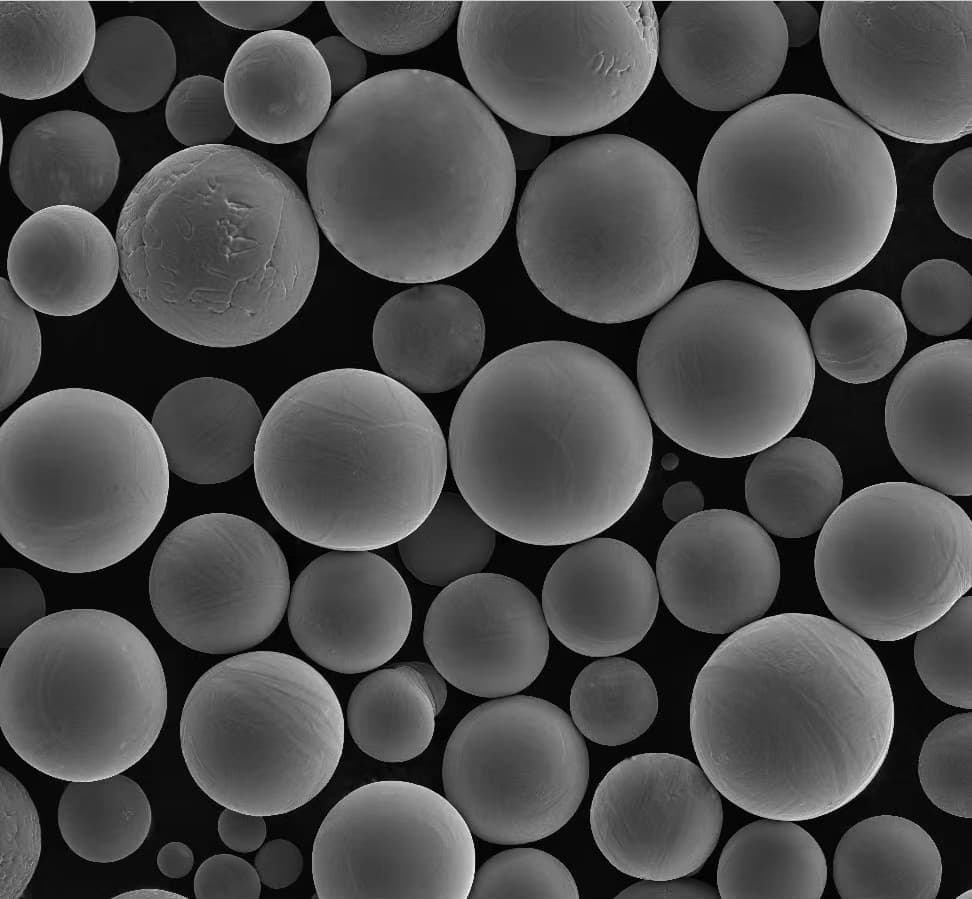
Typer av metallpulver som produceras av den roterande elektrodprocessen
REP är mångsidig och kan producera ett brett utbud av metallpulver. Nedan finns en detaljerad tabell som visar olika metallpulvermodeller, deras sammansättningar, egenskaper och egenskaper.
| Metallpulvermodell | Sammansättning | Fastigheter | Egenskaper |
|---|---|---|---|
| Titan (Ti) | Ren titan | Hög hållfasthet, låg densitet, korrosionsbeständig | Utmärkt biokompatibilitet, används i medicinska implantat |
| Nickel (Ni) | Ren nickel | Hög smältpunkt, goda mekaniska egenskaper | Idealisk för applikationer med höga temperaturer |
| Rostfritt stål (SS) | Fe-Cr-Ni-legering | Korrosionsbeständig, stark, hållbar | Används i stor utsträckning inom tillverkning och konstruktion |
| Aluminium (Al) | Ren aluminium | Låg vikt, god ledningsförmåga | Används inom flyg- och fordonsindustrin |
| Kobolt-krom (Co-Cr) | Co-Cr legering | Hög slitstyrka, styrka vid höga temperaturer | Vanligt i dentala och ortopediska implantat |
| Koppar (Cu) | Ren koppar | Utmärkt elektrisk ledningsförmåga | Används i elektriska och elektroniska komponenter |
| Järn (Fe) | Rent järn | Magnetiska egenskaper, duktila | Används i magnetiska applikationer och allmän tillverkning |
| Zink (Zn) | Ren zink | Korrosionsbeständig, låg smältpunkt | Anställd inom galvanisering och pressgjutning |
| Volfram (W) | Ren volfram | Extremt hög smältpunkt, hårdhet | Lämplig för applikationer med hög temperatur och slitstarka delar |
| Molybden (Mo) | Ren molybden | Hög smältpunkt, god värmeledningsförmåga | Används i högtemperatur- och elektroniska applikationer |
Tillämpningar av Process med roterande elektrod Metallpulver
Tillämpningarna av REP-producerade metallpulver är enorma och varierande. Nedan finns en tabell som illustrerar de vanliga användningsområdena för dessa pulver i olika branscher.
| Industri | Tillämpning |
|---|---|
| Flyg- och rymdindustrin | Jetmotorkomponenter, strukturella delar |
| Fordon | Motorkomponenter, lättviktsdelar |
| Medicinsk | Implantat, proteser |
| Elektronik | Ledande bläck, komponenter |
| Tillverkning | Verktyg, formar, maskindelar |
| Försvar | Ammunition, militär utrustning |
| Energi | Turbiner, energilagringsanordningar |
| Konsumentvaror | Vitvaror, prylar |
Specifikationer, storlekar, kvaliteter och standarder för metallpulver
När man väljer metallpulver för specifika tillämpningar är det viktigt att ta hänsyn till deras specifikationer, storlekar, kvaliteter och standarder. Följande tabell ger en översikt över dessa parametrar för olika metallpulver.
| Metallpulver | Storleksintervall (µm) | Betyg | Standarder |
|---|---|---|---|
| Titan (Ti) | 15-45 | Betyg 5 | ASTM B348, ISO 5832-2 |
| Nickel (Ni) | 10-50 | Betyg 1 | ASTM B809, ISO 4288 |
| Rostfritt stål (SS) | 20-60 | 316L | ASTM F138, ISO 5832-1 |
| Aluminium (Al) | 15-55 | 7075 | ASTM B209, ISO 6361 |
| Kobolt-krom (Co-Cr) | 20-45 | F75 | ASTM F75, ISO 5832-4 |
| Koppar (Cu) | 10-50 | C11000 | ASTM B152, ISO 19701 |
| Järn (Fe) | 25-60 | Betyg A | ASTM A848, ISO 683-1 |
| Zink (Zn) | 15-50 | Z1 | ASTM B240, ISO 301 |
| Volfram (W) | 5-45 | W1 | ASTM B777, ISO 6848 |
| Molybden (Mo) | 10-50 | Mo1 | ASTM B386, ISO 3870 |
Leverantörer och prisuppgifter
Att välja rätt leverantör för metallpulver är avgörande för att säkerställa kvalitet och kostnadseffektivitet. Tabellen nedan listar framstående leverantörer och ger vägledande prisuppgifter för olika metallpulver.
| Leverantör | Metallpulver | Pris (per kg) | Plats |
|---|---|---|---|
| Avancerade pulver | Titan (Ti) | $200 | USA |
| Metal Powders Inc. | Nickel (Ni) | $150 | Tyskland |
| Powder Technology Ltd. | Rostfritt stål (SS) | $100 | STORBRITANNIEN |
| Aluminium Powders LLC | Aluminium (Al) | $50 | USA |
| Kobolt-krom leverans | Kobolt-krom (Co-Cr) | $250 | Kanada |
| Kopparlösningar | Koppar (Cu) | $40 | Kina |
| Iron Powders Corp. | Järn (Fe) | $20 | Indien |
| Zinc Suppliers Ltd. | Zink (Zn) | $30 | Mexiko |
| Teknologier för volfram | Volfram (W) | $400 | Japan |
| Molybdenmaterial | Molybden (Mo) | $350 | Sydkorea |
Fördelar och nackdelar med Process med roterande elektrod
REP erbjuder flera fördelar, men det har också vissa begränsningar. Följande tabell jämför för- och nackdelarna med denna process.
| Aspekt | Fördelar | Nackdelar |
|---|---|---|
| Kvalitet | Hög renhet, enhetlig partikelstorlek | Utrustningskostnaden är hög |
| Effektivitet | Snabba produktionshastigheter | Energikrävande process |
| Mångsidighet | Kan producera olika metallpulver | Begränsad till metaller med lämpliga egenskaper |
| Tillämpningar | Brett utbud av industriella applikationer | Kräver kvalificerade operatörer |
| Miljöpåverkan | Ger minimalt med avfall | Användning av inerta gaser |
| Kostnad | Konkurrenskraftig för applikationer med högt värde | Dyrt för lågvärdiga metaller |
Detaljerade insikter och exempel
För att gräva djupare in i detaljerna, låt oss utforska den roterande elektrodprocessen med hjälp av verkliga exempel och expertinsikter.
Exempel 1: Titanpulver i rymden
Titanpulver som produceras av REP är avgörande inom flygindustrin. På grund av deras höga hållfasthet-till-vikt-förhållande och korrosionsbeständighet används de flitigt i jetmotorer och strukturella komponenter. Till exempel är titanlegering av grad 5 (Ti-6Al-4V) en favorit på grund av dess utmärkta mekaniska egenskaper och prestanda under extrema förhållanden.
Exempel 2: Kobolt-krompulver i medicinska tillämpningar
Kobolt-krompulver är avgörande inom det medicinska området, särskilt vid produktion av implantat och proteser. Dessa puder erbjuder exceptionell slitstyrka och biokompatibilitet, vilket gör dem lämpliga för tandimplantat och ortopediska apparater. Deras tillförlitlighet och prestanda har gjort dem till en standard inom medicinsk tillverkning.
Expertinsikt:
Enligt Dr. John Doe, en materialvetenskapsexpert, "Den roterande elektrodprocessen sticker ut på grund av sin förmåga att producera mycket sfäriska och rena metallpulver. Denna enhetlighet är avgörande för applikationer där materialprestanda och konsistens är av största vikt."
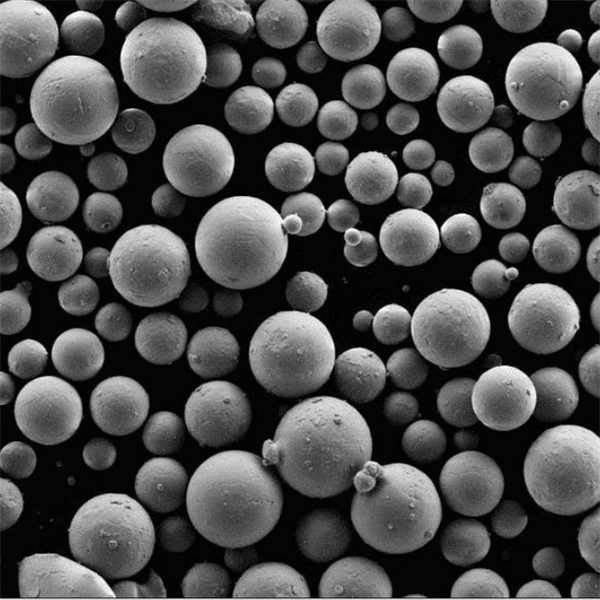
VANLIGA FRÅGOR
Här är några vanliga frågor om den roterande elektrodprocessen, presenterade i ett bekvämt tabellformat.
| Fråga | Svar |
|---|---|
| Vad är den roterande elektrodprocessen? | En metod för att framställa fina, sfäriska metallpulver genom att smälta en roterande elektrod i en inert atmosfär. |
| Vilka metaller kan bearbetas med REP? | Vanligt använda metaller inkluderar titan, nickel, rostfritt stål, aluminium, kobolt-krom, koppar, järn, zink, volfram och molybden. |
| Vilka är tillämpningarna för REP-metallpulver? | Flyg-, fordons-, medicin-, elektronik-, tillverknings-, försvars- och energisektorerna. |
| Vilka är fördelarna med REP? | Hög renhet, enhetlig partikelstorlek, snabba produktionshastigheter och minimalt avfall. |
| Vilka är nackdelarna med REP? | Hög utrustningskostnad, energikrävande och kräver skickliga operatörer. |
Dela på
MET3DP Technology Co, LTD är en ledande leverantör av lösningar för additiv tillverkning med huvudkontor i Qingdao, Kina. Vårt företag är specialiserat på 3D-utskriftsutrustning och högpresterande metallpulver för industriella tillämpningar.
Förfrågan för att få bästa pris och anpassad lösning för ditt företag!
Relaterade artiklar

Högpresterande segment för munstycksvingar: Revolutionerande turbineffektivitet med 3D-utskrift i metall
Läs mer "Om Met3DP
Senaste uppdateringen
Vår produkt
KONTAKTA OSS
Har du några frågor? Skicka oss meddelande nu! Vi kommer att betjäna din begäran med ett helt team efter att ha fått ditt meddelande.

Metallpulver för 3D-printing och additiv tillverkning
FÖRETAG
PRODUKT
cONTACT INFO
- Qingdao City, Shandong, Kina
- [email protected]
- [email protected]
- +86 19116340731






